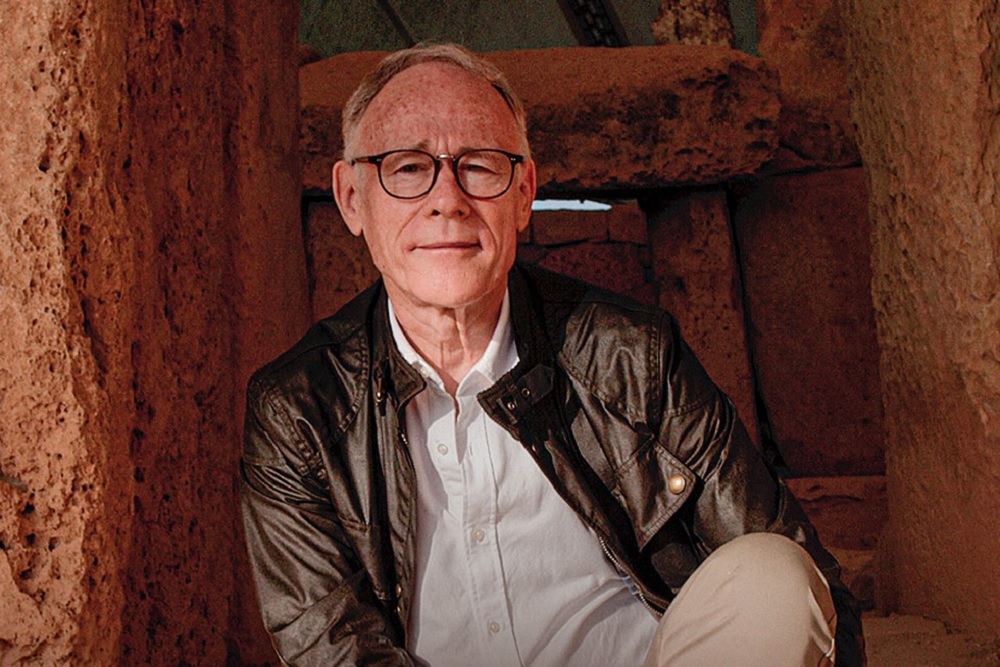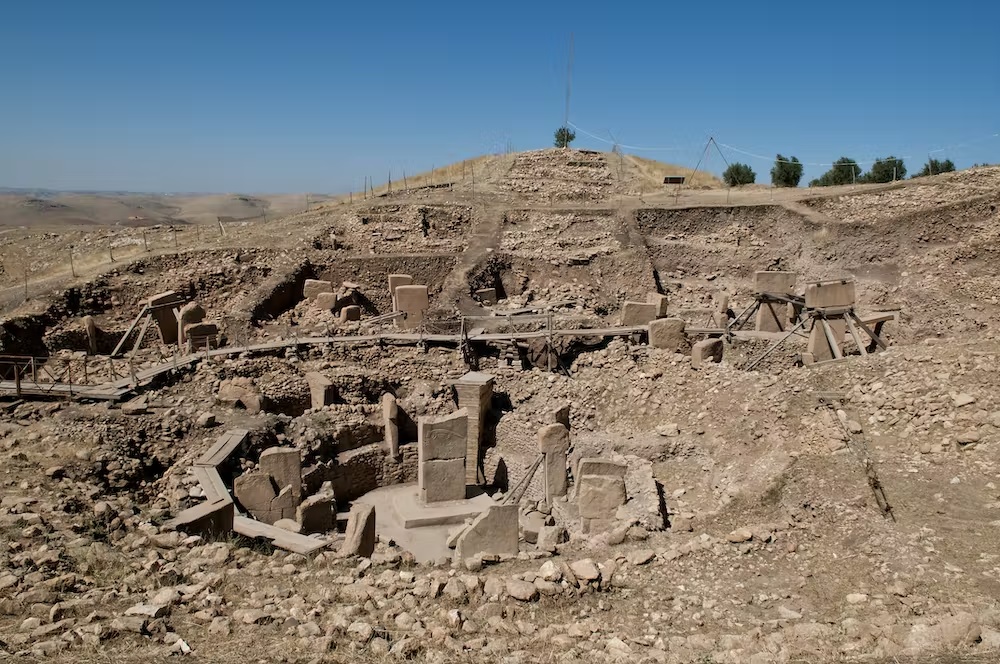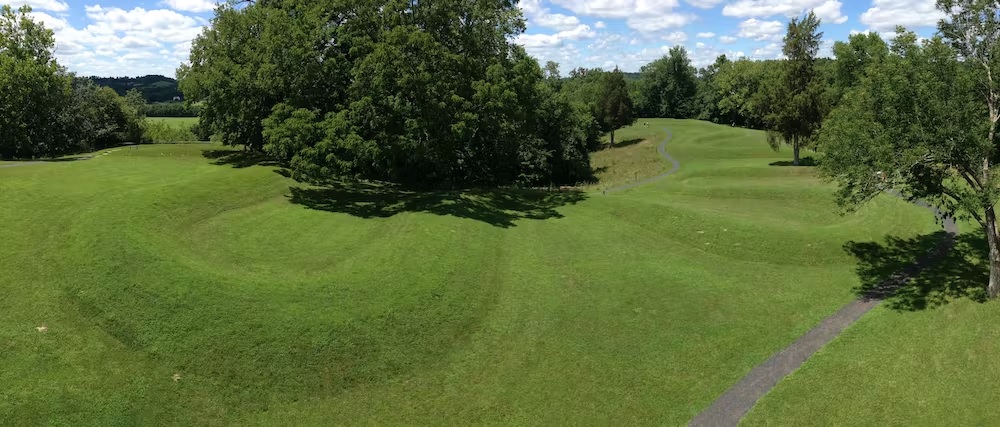With Netflix’s Ancient Apocalypse, Graham Hancock has declared war on archaeologists

School of History, Archaeology and Religion at Cardiff University
Netflix’s enormously popular new show, Ancient Apocalypse, is an all out attack on archaeologists. As an archaeologist committed to public engagement who strongly believes in the relevance of studying ancient people, I feel a full-throated defence is necessary.
Author Graham Hancock is back, defending his well-trodden theory about an advanced global ice age civilisation, which he connects in Ancient Apocalypse to the legend of Atlantis. His argument, as laid out in this show and in several books, is that this advanced civilisation was destroyed in a cataclysmic flood.
The survivors of this advanced civilisation, according to Hancock, introduced agriculture, architecture, astronomy, arts, maths and the knowledge of “civilisation” to “simple” hunter gatherers. The reason little evidence exists, he says, is because it is under the sea or was destroyed by the cataclysm.
“Perhaps,” Hancock posits in the first episode, “the extremely defensive, arrogant, and patronising attitude of mainstream academia is stopping us from considering that possibility”.
The pseudo fish defence
In the opening dialogue of Ancient Apocalypse, Hancock rejects being identified as an archaeologist or scientist. Instead, he calls himself a journalist who is “investigating human prehistory”. A canny choice, as the label “journalist” helps Hancock rebut being characterised as a “pseudo archaeologist” or “pseudo scientist”, which, as he puts it himself in episode four, would be like calling a dolphin a “pseudo fish”.
From my perspective as an archaeologist, the show is surprisingly (or perhaps unsurprisingly) lacking in evidence to support Hancock’s theory of an advanced, global ice age civilisation. The only site Hancock visits that actually dates to near the end of the ice age is Göbekli Tepe in modern Turkey.
Instead, Hancock visits several North American mound sites, pyramids in Mexico, and sites stretching from Malta to Indonesia, which Hancock is convinced all help prove his theory. However, all of these sites have been published on in detail by archaeologists, and a plethora of evidence indicates they date thousands of years after the ice age.
Hancock argues that viewers should “not rely on the so-called experts”, implying they should rely on his narrative instead. His attacks against “mainstream archaeologists”, the “so-called experts” who “practice censorship” are strident and frequent. After all, as he puts in in episode six, “archaeologists have been wrong before and they could be wrong again”.
Steph Halmhofer, a PhD candidate at the University of Alberta who studies the use of pseudo archaeology and erasure of indigenous heritage by far-right groups, suggests that these attacks on archaeologists function to increase his sense of authority with viewers. As Halmhofer explains:
It’s about conspiracism and the positioning of Hancock as the victim of a conspiracy. The repeated disparaging remarks about archaeologists and other academics in every episode of Ancient Apocalypse is needed to remind the audience that the alternative past being proposed is true, regardless of the lack of conclusive evidence for it. And the vagueness of who this supposed advanced civilisation was, combined with the credence given to it by being in a Netflix-produced series, is going to make Ancient Apocalypse an easily mouldable source for anyone looking to fill in a fantasied mythical past.
Dangers of pseudo archaeology
In the last decade we have seen how conspiracy theories and distrust in experts impacts the world around us. And research has shown how pseudo archaeology – especially when couched in anti-intellectual rhetoric – can overlap with more dangerous conspiracy thinking.
Of course, archaeologists frequently admit when we have been wrong. Any academic teaching “Archaeology 101” or applying to fund a new study points out how new evidence updates our picture of the past. Despite the fact that every scientific field updates its thinking with new evidence, according to Hancock, any rewrites to history mean that archaeologists, his “so-called experts,” should not be relied upon.
Despite repeated claims made by Hancock, no archaeologists today see stone age hunter-gatherers or early farmers as “simple” or “primitive”. We see them as complex people. Priming viewers to distrust archaeologists, also allows Hancock to use circular logic to re-date these sites.

The murky origins of Hancock’s theories
Hancock claims in his book Magicians of the Gods that as the “implications” of his theories “have not yet been taken into account at all by historians and archaeologists, we are obliged to contemplate the possibility that everything we have been taught about the origins of civilisation could be wrong”. However, archaeologists have repeatedly addressed his theories in academic publications, on TV and in mainstream media.
Most glaring to scholars investigating the history of Hancock’s pseudo archaeology is that while claiming to “overthrow the paradigm of history,” he doesn’t acknowledge that his overarching theory is not new.
Scholars and journalists have pointed out that Hancock’s ideas recycle the long since discredited conclusions drawn by American congressman Ignatius Donnelly in his book Atlantis: The Antediluvian World, published in 1882.
Donnelly also believed in an advanced civilisation – Atlantis – that was wiped out by a flood over 10,000 years ago. He claimed that the survivors taught Indigenous people the secrets of farming and monumental architecture.
Like many forms of pseudo archaeology, these claims act to reinforce white supremacist ideas, stripping Indigenous people of their rich heritage and instead giving credit to aliens or white people.

Hancock even cites Donnelly directly in his 1995 book Fingerprints of the Gods, claiming: “The road system and the sophisticated architecture had been ‘ancient in the time of the Incas,’ but that both ‘were the work of white, auburn-haired men’.” While skin colour is not brought up in Ancient Apocalypse, the repetition of the story of a “bearded” Quetzalcoatl (an ancient Mexican deity) parrots both Donnelly’s and Hancock’s own summary of a white and bearded Quetzalcoatl teaching native people knowledge from this “lost civilisation”.
Hancock’s mirroring of Donnelly’s race-focused “science” is seen more explicitly in his essay, Mysterious Strangers: New Findings About the First Americans. Like Donnelly, Hancock finds depictions of “caucasoids” and “negroids” in Indigenous American art and (often mistranslated) mythology, even drawing attention to some of the exact same sculptures as Donnelly.
This sort of “race science” is outdated and long since debunked, especially given the strong links between Atlantis and Aryans proposed by several Nazi “archaeologists”.
These are the reasons why archaeologists will continue to respond to Hancock. It isn’t that we “hate him” as he claims, it is simply that we strongly believe he is wrong. His flawed thinking implies that Indigenous people do not deserve credit for their cultural heritage.
Netflix labels Ancient Apocalypse a docuseries. IMDB calls it a documentary. It’s neither. It’s an eight-part conspiracy theory that weaponises dramatic rhetoric against scholars.![]()
This article is republished from The Conversation under a Creative Commons license. Read the original article.
![]()
Support our Nation today
For the price of a cup of coffee a month you can help us create an independent, not-for-profit, national news service for the people of Wales, by the people of Wales.






Anybody out there still remember Erik Von Danekin?
There will always be an audience for this drivel.
No he hasn’t. Anyone who thinks he is in opposition to the mainstream, well sorry to burst your bubble, he isn’t! He knows full well who built the Pyramids, Stonehenge, Snake mounds of America, etc. it certainly wasn’t Giants or Aliens! You are right about these claims writing away native cultures, no one has suffered more from that than those of Cymru.
Yeah sorry Flint, but when we have an archaeological establishment which engages in ideological interpretation of its finds, much of whose “established opinion” is circular reasoning based on the ill informed opinions of pompous, vindictive and often xenophobic Victorian “gentlemen archaeologists” I am afraid I find Graham Hancock’s specious reasoning not a million miles away from the Archie establishment. The Archie establishment finds “Saxon” and “Roman” finds everywhere. Even places they never went. They never find indigenous British finds. Our ancestors are painted as sht eating savages who couldn’t put two stones on to of each other, even after 300… Read more »
Author complains about disparaging remarks against archaeology in an article which is an ad hominem attack from beginning to end. Rich in insult poor in scientific rebuttal. Reminds me very much of the unchallenged attacks his ancient peers made against Iolo Morgannwg. (And in recent years against Blackett and Wilson). If you look at the accusations levelled at Iolo, few of them stand up to scrutiny. But much like something written on Wikipedia, these attacks were used to lend credence to later attacks, which in turn were used to claim there was “overwhelming evidence” against him. And yet, other than… Read more »
I have read Hancock’s books and though he over reaches sometimes he does have a point in certain areas. Some of the sites are older than believed (though whether they go as far back as 20,000 years ago is debatable) and sea levels, in different areas, have risen dramatically since the last ice age, for various reasons, and there may well be civilisations waiting to be discovered beneath the waves. I’m a geologist and the history of geology is full of people with wild ideas, Wegener and plate techtonics for example, that have eventually gained credibility. I don’t believe all… Read more »
I just listened to Mr. (Dr.?) Dibble’s interview with History Extra Podcast, and it irritated me so much I wanted to say *something*, *somewhere*, but couldn’t find a way to comment on the podcast itself. I wanted to thank History Extra for providing us with a perfect example of the closed-minded, indoctrinated, fanatical, arrogant, and pugnacious classical archaeologists who view anything and anyone who does not agree with their established “truth” as a personal attack. Contrary to the title of this article, archaeologists LONG AGO declared war on anyone who disagrees and refuses to lock-step with them on what they… Read more »